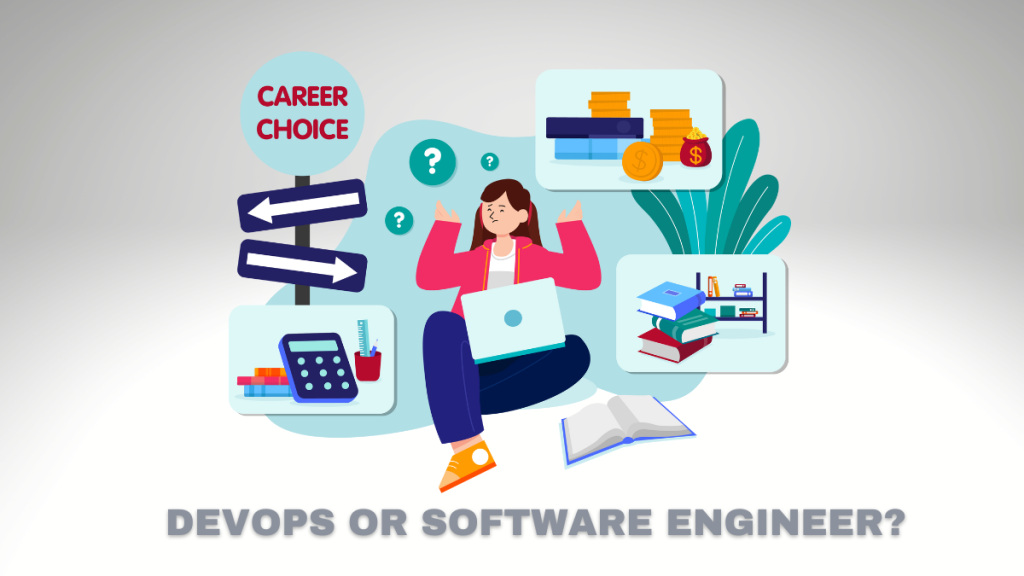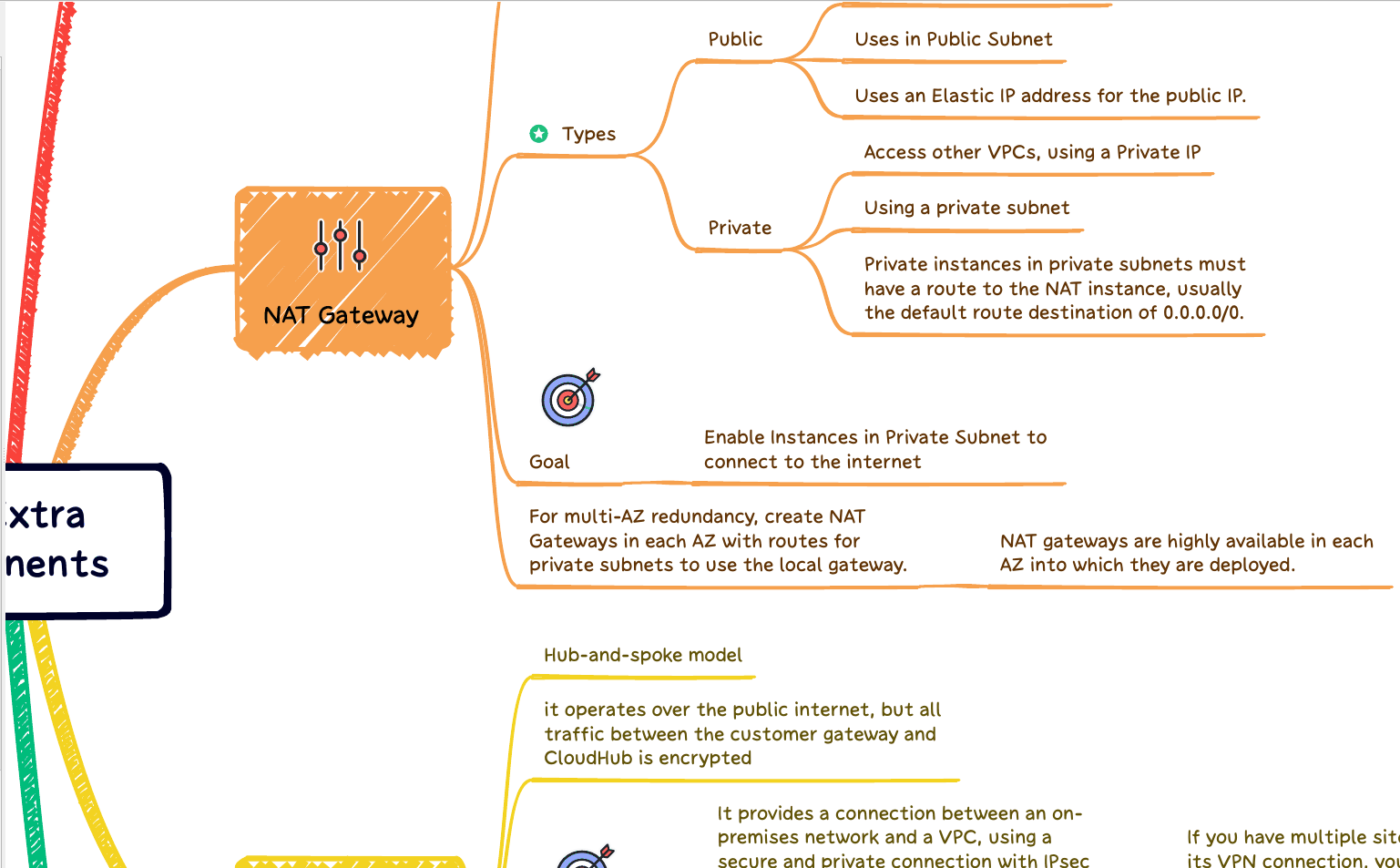Are you an aspiring software engineer interested in DevOps? Do you want to discover what it takes to enter—and succeed—in this incredibly rewarding career path? Or you don’t know which one to choose? If so, then read on.
If you’ve narrowed down your career options to DevOps Engineer or Software Engineer, then you have a tough decision ahead of you. Both career paths offer unique opportunities and require distinct sets of skills. To help you make the right choice, let’s take a look at what it takes to become successful in both DevOps and Software Engineering roles.
DevOps Engineer
For DevOps Engineers, the key is understanding how software interacts with hardware, networks, and databases. This means learning about DevOps tools such as Puppet, Chef, Ansible, and Docker; cloud technologies like Amazon Web Services (AWS) and Microsoft Azure; virtualization concepts; scripting languages such as Bash or PowerShell; source control principles; automation techniques; continuous integration/continuous delivery (CI/CD) practices; and more. If you have a knack for understanding how the different parts of a system fit together, DevOps could be the career for you.
Software Engineer
Software Engineers are focused on developing applications. This requires a great deal of knowledge about programming languages such as Java, Python, C++, or JavaScript; frameworks like React and Angular; databases like MySQL or MongoDB; communication protocols and APIs; design patterns; algorithms and data structures; development methodologies like Agile or DevOps; security best practices; debugging tools and techniques – in short, everything related to software engineering.
Check here the Top 100 Programming Languages
Now that we’ve outlined what it takes to become successful in both DevOps Engineering and Software Engineering roles, you’ll need to consider which career is the easiest for you to start. DevOps Engineers tend to require a wider range of skills than Software Engineers, so DevOps may be easier to jump into if you have some experience in system administration and automation. On the other hand, if you’re more familiar with application development, then Software Engineering is probably the better choice.
At the end of the day, it all comes down to your interests and skill set – both DevOps and Software Engineering offers great opportunities for career growth. Whichever path you choose, make sure that it aligns with your passion and that you’re constantly learning new things.
Which career is the most easier to start?
DevOps may be easier to jump into if you have some experience in system administration and automation. On the other hand, if you’re more familiar with application development, then Software Engineering is probably the better choice.
What should you learn to become a successful DevOps Engineer?
DevOps Engineers need to understand how software interacts with hardware, networks, and databases. This means learning about DevOps tools such as GitLab, Puppet, Chef, Ansible, and Docker; cloud technologies like Amazon Web Services (AWS) and Microsoft Azure; virtualization concepts; scripting languages such as Bash or PowerShell; source control principles; automation techniques; continuous integration/continuous delivery (CI/CD) practices; and more.
If you plan to learn or improve your AWS Skills, check out the AWS Learning Kit.
What should you learn to become a successful Software Engineer?
Software Engineers need to know about programming languages such as Java, Python, C++, or JavaScript; frameworks like React and Angular; databases like MySQL or MongoDB; communication protocols and APIs; design patterns; algorithms and data structures; development methodologies like Agile or DevOps; security best practices; debugging tools and techniques.
Which career has the greatest salary?
Salary potential varies depending on experience, location, and industry. DevOps Engineers typically command higher salaries than Software Engineers due to their larger range of technical skills. DevOps Engineers also tend to be in higher demand as companies look to automate more of their processes. However, experienced Software Engineers can often make just as much money (or more!) than DevOps Engineers due to the expertise required for complex application development.
Overall, which career is the best for you?
It really depends on your interests and skill set – both DevOps Engineering and Software Engineering offer great opportunities for career growth. The most important thing is finding a career that aligns with your passion and allows you to continuously learn new things. Good luck!
Which career is the best for you?
Ultimately, it all comes down to your interests and skill set – both DevOps and Software Engineering offers great opportunities for career growth. Whichever path you choose, make sure that it aligns with your passion and that you’re constantly learning new things.
Which career has more opportunities?
Both DevOps and Software Engineering careers offer a lot of opportunities, but the field that is more in demand can vary based on the industry you’re looking at. DevOps Engineers are highly sought after in industries such as healthcare, retail, and finance due to their ability to bridge the gap between development and operations departments. On the other hand, Software Engineers tend to be most popular in technology-focused companies or startups where new applications need to be built quickly. Ultimately, research your target industry to see which career has more opportunities for you.
Should I have a college degree to work as an engineer?
Having a college degree is not required for DevOps or Software Engineering, although it can help you stand out from the competition. However, if you are serious about pursuing a career in DevOps or Software Engineering, then obtaining certifications and completing courses in relevant technologies will be key to getting hired as an engineer. With the right skills and knowledge, you can land your dream job without needing a college degree!
Can a Software Engineer migrate to DevOps Role and vice versa?
Yes, it is very possible to transition from a DevOps Engineer role to a Software Engineer role or vice versa. DevOps Engineers need to have some knowledge of software development in order to build systems that automate and manage software applications. Conversely, Software Engineers must also understand DevOps concepts such as scripting languages, automation tools, and CI/CD best practices in order to create high-quality software applications. With the right set of skills, transitioning between DevOps and Software Engineering roles can be relatively straightforward.
Can I do both DevOps and Software Engineering?
Absolutely! There are many career paths that involve both DevOps and Software Engineering. For example, DevOps Architects and DevOps Engineers are responsible for both designing and managing the automated systems that run software applications. Similarly, DevOps Developers must have a strong understanding of both DevOps and software development in order to create effective solutions. Ultimately, if you have the technical knowledge and skillset, it is entirely possible to pursue a career at the intersection of DevOps and Software Engineering!
Can I become a DevOps Engineer without experience?
Yes, although having some prior experience with DevOps technologies can certainly give you an edge when applying for DevOps Engineer roles. If you are just starting out as a DevOps Engineer, there are plenty of online courses and certifications that you can take to gain the skills necessary for DevOps roles. Additionally, many DevOps teams are willing to provide on-the-job training for entry-level DevOps Engineers, so don’t be afraid to reach out and ask!
What other career opportunities exist within DevOps?
In addition to DevOps Engineer roles, there are plenty of other career opportunities available within DevOps. For instance, DevOps Architects design the systems and processes required to effectively deploy applications in a DevOps environment. DevOps Consultants advise companies on best practices around DevOps processes and technologies. Additionally, Dev Ops Managers are responsible for leading DevOps teams, while DevOps Administrators oversee the day-to-day DevOps operations. Ultimately, DevOps is an ever-evolving field with plenty of career opportunities for those interested in the space!
What advice would you give to someone considering a DevOps or Software Engineer career?
My best piece of advice for someone considering a career in DevOps or Software Engineering is to get out there and start learning! There are many free online courses and resources available that can help you gain the technical knowledge necessary for these roles. Additionally, I recommend developing soft skills such as communication and problem-solving, which are essential when working on DevOps or software engineering projects.
Conclusion
In conclusion, DevOps and Software Engineering are both great career paths with immense growth potential. Research your target industry and assess your skill set to determine which career is best suited for you. Whichever path you decide to embark on, make sure to keep learning in order to stay ahead of the competition.
If you have kids, check-out how to explain DevOps for a kid.
Hopefully, this article has helped you understand the differences between DevOps Engineers and Software Engineers, as well as the career paths available within DevOps. With the right skill set and knowledge, DevOps can open up a world of opportunities for aspiring engineers!
Good luck on your journey to becoming a DevOps Engineer or Software Engineer!
P.S. Don’t forget to check out our AWS VPC Mind Maps, designed to help you take your career to the next level. We wish you all the best in reaching your goals!
Good luck!

